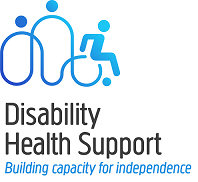What is the NDIS (National Disability Insurance Scheme)?
The NDIS can provide all people with disability with information and connections to services in their communities such as doctors, sporting clubs, support groups, libraries and schools, as well as information about what support is provided by each state and territory government. The plan is to provide you with funded access to all the support you need to allow you to lead a functional and productive life. The goal is to by eliminate the barriers that confront you related to your disability and that includes poor health or inadequate healthcare.
Unsure about whether your plan will allow you support to overcome healthcare related issues, call and ask: 0456060353
The NDIS can provide all people with disability with information and connections to services in their communities such as doctors, sporting clubs, support groups, libraries and schools, as well as information about what support is provided by each state and territory government. The plan is to provide you with funded access to all the support you need to allow you to lead a functional and productive life. The goal is to by eliminate the barriers that confront you related to your disability and that includes poor health or inadequate healthcare.
Unsure about whether your plan will allow you support to overcome healthcare related issues, call and ask: 0456060353
Am I eligible for the NDIS?
Am I eligible for the NDIS?
- Are you aged between 7 and 65?
- Do you live in Australia and have Australian residency?
- Do you usually need support from a person because of a permanent and significant disability?
- Do you use special equipment because of a permanent and significant disability?
- Do you need some supports now to reduce your future needs?
What does the NDIS pay for? The types of supports that the NDIS may fund for participants include:
Since 1 October 2019, additional disability-related health supports have been available to purchase using NDIS funding. The typical items of support available can be grouped into eight ‘support type’ categories (see list below) but this is not an exhaustive list and if health is an area where you need support, you should seek advice from an expert in Disability Health Support and your NDIS planner or coordinator.
The NDIA is working closely with the Commonwealth, State and Territory governments to ensure participants who may be eligible for these supports have them included in their NDIS plan.
- daily personal activities
- transport to enable participation in community, social, economic and daily life activities
- workplace help to allow a participant to successfully get or keep employment in the open or supported labour market
- therapeutic supports including behaviour support
- help with household tasks to allow the participant to maintain their home environment
- help to a participant by skilled personnel in aids or equipment assessment, set up and training
- home modification design and construction
- mobility equipment, and
- vehicle modifications.
If your plan is being reviewed:
- Additional disability-related health supports can be included in your plan, if deemed reasonable and necessary.
If you already have a NDIS plan
- You can use your unspent core supports budget in your NDIS plan to flexibly purchase disability-related health supports (with the exception of Assistive Technology valued over $1500). Alternatively you can continue to receive support from your State and Territory health service and inform them you are an NDIS participant. Our specialist service will offer support to escalate your needs with the NDIA or support you to seek a plan review.
When it is time for your plan review, you can discuss your need for these supports, and they will be included in your plan, if they are reasonable and necessary. Be sure you present to your plan review very well prepared and supported. If a health issue is something that relates to your disability which limits your independence or capacity then you need to know how to ensure that overcoming or living with the resulting barriers is correctly provided for in your review. We can assist here.
How we work within your plan to overcome disability barriers:
Typically our health related support services focus on:
Typically our health related support services focus on:
- Specialist Support coordination (health related).
- Capacity Building: Improved daily living skills (assessment, recommendation, therapy, training and other therapy)
- Therapeutic Supports: assistance with daily living (assessment, recommendation, therapy, training and other therapy)
How do doctors determine disability?
When seeking to access the NDIS, patients and carers will often ask their GP for support, from general information and advice on eligibility to evidence gathering and documentation. As such, GPs and other health professionals can play a vital role in:
When seeking to access the NDIS, patients and carers will often ask their GP for support, from general information and advice on eligibility to evidence gathering and documentation. As such, GPs and other health professionals can play a vital role in:
- helping patients understand the NDIS
- guiding patients through the access process
- referring patients to NDIS community partners and other treating professionals for information and support, where appropriate
- providing evidence to support an Access Request
- documenting that the patient has or is likely to have a permanent disability and
- providing copies of reports or assessments relevant to the diagnosis/condition that help describe the functional impact of an impairment.



